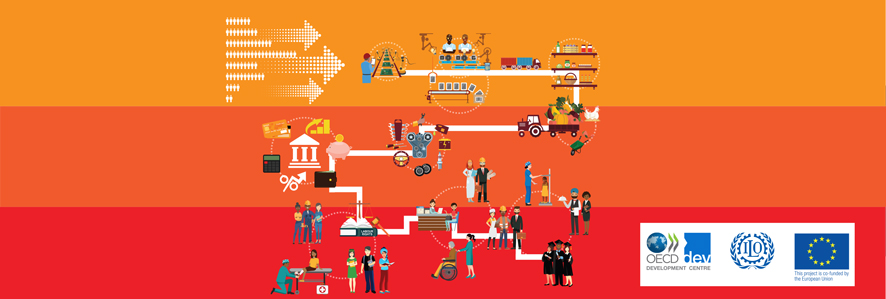Migration and development
ECLM Timeline
 |
|
Contact Us |
Phase I: Inception (August 2014 – November 2014)
During the inception phase, countries will be encouraged to express their interest and willingness to participate in the project. Following this, country-level consultations with local authorities will take place. Workers and employers’ organisations, as well as national statistical offices, will also be consulted during this phase.
Phase II: Conceptual and methodological framework (December 2014 – July 2015)
The second phase of the project will concentrate on the development of a common conceptual and methodological framework. In each participating country, a local research partner will be chosen based on the institution’s demonstrated experience in the field of migration and development. Additionally, an international expert meeting will be organised to share knowledge on and experience in developing methodologies for assessing the economic contribution of labour migration.
Phase III: Work at country level (August 2015 – July 2016)
The focus of Phase III will be the application in each country of the common methodology developed in the previous phase. This will be carried out in close co-operation with local partners. In addition, specific sectoral analyses will be carried out in the sectors identified as relying most heavily on migrant workers. This phase is also designated for the collection of primary data through field work and surveys.
Phase IV: Comparative analysis of data (August 2016 – April 2017)
During Phase IV, country data will be centralised and analysed, both quantitatively and qualitatively, using a comparative perspective in order to draw general conclusions about the economic contribution of labour immigration in developing countries.
Phase V: Dissemination and discussion of results (May 2017 – January 2018)
Finally, during the final phase, the main findings will be presented at the country level and discussed with the representatives and relevant authorities of partner countries. These meetings will provide the opportunity to analyse and discuss the policy implications of the findings with regards to both existing and future policies. Furthermore, a final report will be drafted and subsequently presented during a final conference that will gather representatives from each partner country, as well as experts and policy makers from other countries.
Related Documents